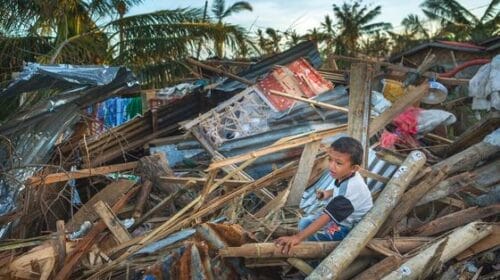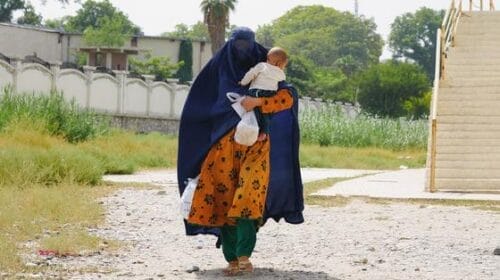The US Blockade against Cuba is Aggressively Extraterritorial and a Violation of International Law
The new authorities´ resolute will to act with total independence and to produce decisive economic and social changes in favor of the majority, constituted the detonating fact that reactivated the historic diferendo between both countries.
The United States´ response was fast and abusive from the first moment. The sanctions directed to fold the Revolution followed one after the other. It became a total blockade, an economic war the United States has imposed agaisnt Cuba during four decades. No matter these efforts the northamerican nation has not managed to recover the former hegemony it had in one of the Western Hemisphere´s preferred enclave.
US blockade against Cuba violates UN Charter
For 53 years now, the cruel policy of economic strangulation against our country has been guided by the rationale of a memorandum submitted by Deputy Assistant Secretary of State Lester Mallory dated April 6, 1960, the text of which states:
“The majority of Cubans support Castro […] There is no effective political opposition. […] The only foreseeable means of alienating internal support is through disenchantment and disaffection based on economic dissatisfaction and hardship. […] every possible means should be undertaken promptly to weaken the economic life of Cuba. […] denying money and supplies to Cuba, to decrease monetary and real wages, to bring about hunger, desperation and overthrow of government.”
Thus, and since its very conception, the blockade has been and is a flagrant violation of International Law, is contrary to the principles and purposes of the United Nations Charter and constitutes a violation of the right to peace, development and security of a sovereign State.
Given its stated purpose and the complex political, legal and administrative structure on which it is based, the blockade qualifies as an act of genocide under the Geneva Convention on the Prevention and Punishment of the Crime of Genocide of 1948.
The Cuban people endures severe economic losses, which till April 2013 –after five decades of blockade- amount to 1 157 327 000 000 US Dollars, if depreciation of the dollar against gold value in the international market is taken into consideration.
At the beginning of his Administration in 2009, President Obama announced a fresh start with Cuba and expressed his conviction that relations between Cuba and the United States could follow a new direction. Five years later, all we have seen is a reinforcement of the extraterritorial nature of the blockade and an intensified persecution of Cuba’s international financial transactions.
In that period, the blockade has proven to be the main obstacle for Cuban economic and social development, the largest hindrance for expanding Cuba’s commercial ties with the rest of the world, and has become a serious restraint for the international cooperation that the country both provides and receives.
Cuba cannot freely export and import goods and services to and from the United States, nor use the dollar in its international financial transactions or open accounts in that currency in third-country banks.
Assistance provided by international financial institutions is also prohibited for Cuba.
The obsessive persecution of and harassment against those establishing or trying to establish normal relations with Cuba by the Office of Foreign Assets Control (OFAC) of the Treasury Department, is an outstanding feature of the extraterritorial scope of the blockade.
From January, 2009 to September, 9, 2013, the Obama Administration had forced 30 American and foreign entities to pay over 2.4 billion dollars for having relations with Cuba and other countries under sanction.
An editorial published on March 3, 2013 by the Bloomberg agency revealed that between 2000 and 2006 alone, the US Administration had filed 11,000 investigation proceedings for alleged infringement of sanctions against Cuba. The same information also indicated that 7,000 investigation proceedings had been filed for the remaining countries.
All this in a context in which US authorities themselves have acknowledged that Cuba poses no threat to the national security of that country, still they insist in including it in the infamous list of countries sponsoring terrorism to justify the fierce persecution of Cuba’s financial transactions and the reinforcement of the blockade.
The major effects of the blockade are felt in the most sensitive areas of Cuban people’s life. The decision by the Zurich Canton Bank to suspend, under US pressure, all transfers to Cuba, affected the cooperation that MediCuba-Suisse –a non-governmental organization- has maintained with Cuban public health authorities in such areas as fighting cancer, pediatrics, and HIV/AIDS prevention.
In an unprecedented event in the work carried out by the office of the World Health Organization/Pan-American Health Organization in Cuba, a Canadian Bank –also under US pressure—withhold the funds for the purchase of influenza vaccines intended for the immunization program for the elderly.
In April, 2013, OFAC prevented Cuba Solidarity Campaign (CSC) –a British non-governmental organization—from buying 100 copies of the book The Economic War against Cuba. A Historical and Legal Perspective on the U.S. Blockade, by Salim Lamrani, published by the New York Publishing House Monthly Review Press.
The excessive nature of the action was summarized by Rob Miller, Director of CSC who said that “They are using an extraterritorial legislation on economic sanctions against Cuba to prevent the sale in the United Kingdom of a book which describes the scope of the blockade against Cuba […]. The ridiculousness of the US blockade is illustrated yet again by this case in which they try to prevent British readers from reading a book published by a US publishing house.”
The Government of the United States must immediately and unconditionally lift the blockade. It is an absurd, obsolete, illegal and morally unsustainable policy that has not and will not fulfill the purpose of bending the patriotic will of the Cuban people to preserve its sovereignty, Independence and right to self-determination.
Overwhelming vote for Cuba against US blockade
Since 1992, each session of the United Nation’s General Assembly has voted in increasing numbers to demand that the U.S. government end its blockade of Cuba.
Last year’s vote on Oct. 29 topped them all, with an overwhelming rejection of U.S. policy. It was virtually unanimous with only two states in the world backing the blockade, the United States and Israel. An astounding 188 member nations supported Cuba. Three Pacific island states, Micronesia, Marshall Islands and Palau, abstained. In previous years, each of these islands, virtual colonies and highly dependent on financial aid from Washington, have backed the United States.
This year not one of them was willing to tow the U.S. line. They abstained instead.
In the weeks leading up to the UN resolution vote, dozens of countries took the platform to condemn Washington’s more than 50-year blockade of the island.
Presenting the Cuban resolution before the UN General Assembly, just before the vote, Cuban Foreign Minister Bruno Rodríguez said that Washington blockade “is an uncivilized act that prevents the free circulation of persons, the free flow of information, the exchange of ideas and the development of cultural, sports and scientific relations.”
The top Cuban diplomat went on to say that the U.S. policy against Cuba is suffering from an absolute international isolation and discredit and lacks every ethical or legal ground.”



